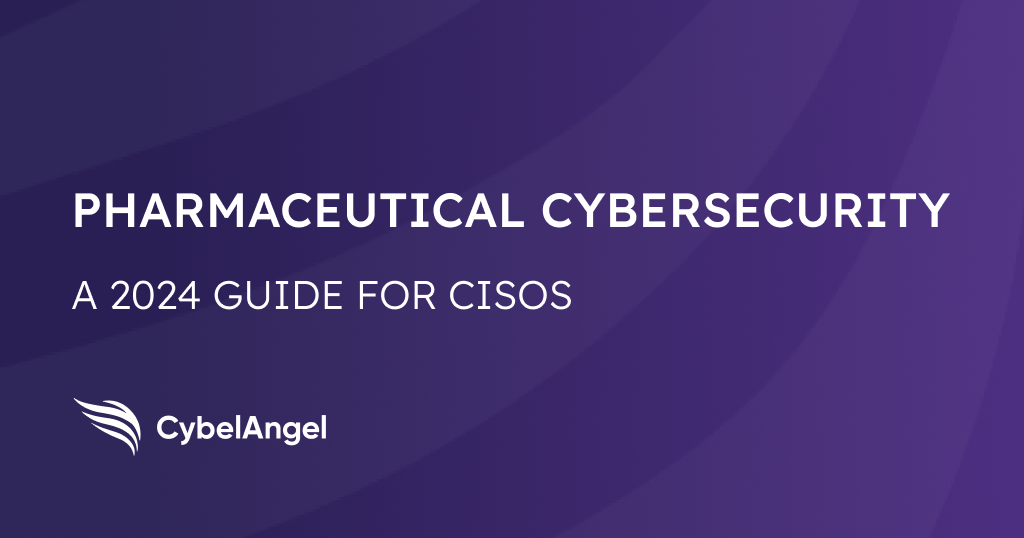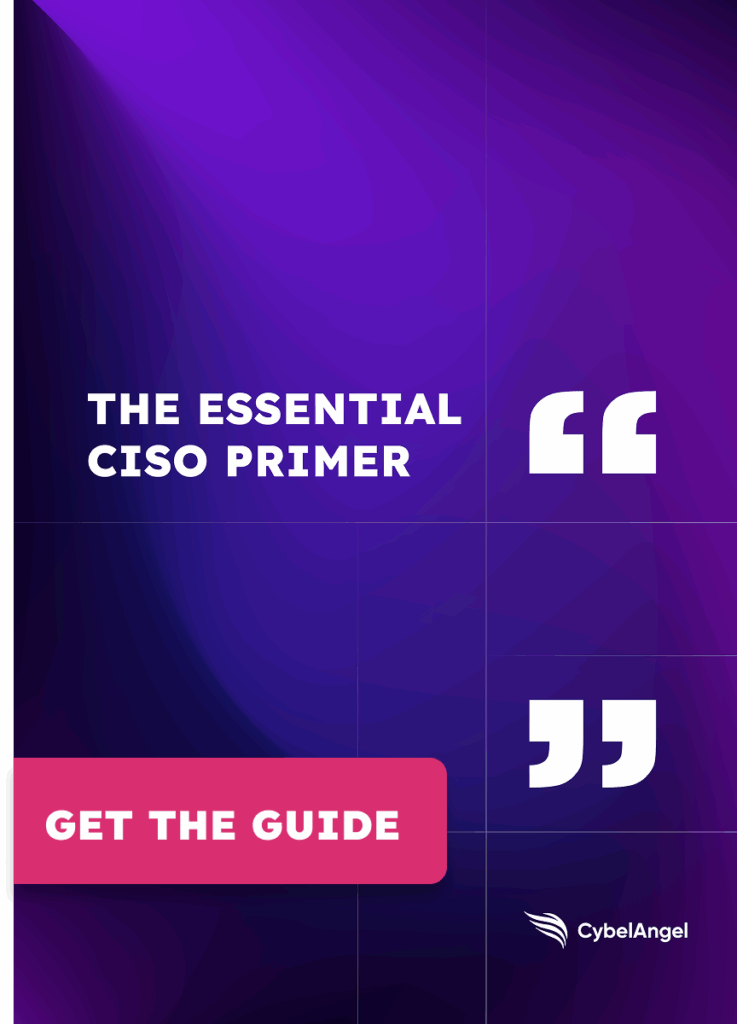The Scope of Pharmaceutical Cybersecurity in 2024

Table of contents
Pharmaceutical companies are a golden target for cyberattacks. From lengthy supply chains to valuable intellectual property and personal data available, cybercriminals have plenty of vulnerabilities to exploit.
In this pharmaceutical cybersecurity guide, you’ll unpack why pharma companies are so vulnerable to cyber threats, the main trends and case studies this year—and what CISOs can do to protect pharmaceutical organizations from cyberattacks.
1: Why is the pharma industry a target?
If hackers want to exploit someone’s digital ecosystem, then the pharma and healthcare industry is a particularly appealing prospect. Pharmaceutical companies are especially attractive to cybercriminals for 7 key reasons.
1. They have valuable intellectual property (IP)
Research and development (R&D) are a top priority for pharmaceutical companies. If they want to stay ahead of their competitors, they need to constantly innovate when it comes to new drugs, treatments, and therapies.
However, the IP from their clinical trials, manufacturing, and patents is especially valuable. Cybercriminals might target these assets to sell them on the black market, to forward them to a competitor, or to use them for their own advantage.
2. They have incredibly sensitive data
Pharma companies access a huge amount of sensitive data, including:
- Patient information
- Clinical trial results
- Proprietary research
- Regulatory filings
This valuable data is subject to stringent regulations—which makes it even more appealing to people who want to monetize it. For example, cybercriminals could use this data for fraud, blackmail, or identity theft.
3. Their supply chains are vulnerable
Pharmaceutical companies work via a complex network of partners, vendors, providers, and suppliers. With so many parties involved, there are countless insider threats and opportunities for cybercriminals to take advantage of, such as by accessing databases or compromising the integrity of the products. Unfortunately, it only takes one player to compromise their data security, and the entire supply chain will experience disruption.
4. Their regulatory compliance can be exploited
If pharma companies don’t comply with regulatory requirements, then they can face severe legal repercussions, fines, and reputational damage.
They’re subject to many laws, including:
- Data privacy laws: Such as the General Data Protection Regulation (GDPR), and the Health Insurance Portability and Accountability Act (HIPAA)
- Industry regulations: Including the Food and Drug Administration (FDA), for those who are based in the United States
Cybercriminals can exploit weaknesses in companies’ regulatory compliance. They can also disrupt operations to cause violations deliberately.
5. The consequences can go global
The pharmaceutical industry isn’t a simple regional network; it operates globally. This means that cybercriminals can have a significant impact across multiple countries and regions via an attack. When it comes to attack scale, the pharma world has huge potential.
6. They don’t always have a strong cybersecurity strategy
Although more pharmaceutical companies are starting to understand cyber risks, their cybersecurity solutions aren’t always as developed as in other industries.
This is because:
- Their budgets are sometimes more limited
- They don’t always invest the same resources
- They aren’t always proactive about mitigating cybersecurity challenges
The result? Having limited cybersecurity measures makes them more vulnerable to phishing attacks, ransomware attacks, and other cyber attack malware.
7. The financial gain can be huge for cybercriminals
With so much sensitive data, cybercriminals have lots of opportunities to exploit pharma companies. For example, they might use ransomware attacks to encrypt valuable data and demand a “ransom” for its release. Or, they might engage in insider trading, where they access secret information on regulatory approvals or treatment research.
The bottom line: From valuable data, to regulatory pressures, to supply chain complexities and beyond, pharmaceutical companies are prime targets for cybercriminals.
2. The 8 main pharma cybersecurity threats
Now that you have established a motive for cybercriminals to exploit the pharma industry, take a look at some of the common threats that pharmaceutical companies face.
- Ransomware attacks: Sensitive pharmaceutical data can be stolen and encrypted until the victim pays a “ransom” for the decryption keys.
- Phishing and social engineering attacks: Fraudulent messages, emails, and websites can trick pharmaceutical providers into sharing valuable data, or downloading malware.
- Data breaches: Sensitive data can be uncovered by hackers, leading to regulatory compliance penalties, loss of trust, and legal consequences.
- Supply chain attacks: Third-party providers can compromise pharma companies when they’re attacked, such as by introducing malware into pharmaceutical databases. Any disrupted operations will also lead to production delays, product shortages, and loss of revenue.
- Intellectual property theft: From drug formulations, to clinical trial data and manufacturing, cybercriminals can steal this information for competitors, or to sell it on the black market.
- Insider threats: Business partners, employees, and contractors can compromise pharmaceutical security operations, either on purpose or simply through negligence.
- Cyber espionage: Both corporate and state-sponsored players can spy on pharmaceutical data. This could be to attack national security, or simply to gain a competitive advantage.
- New technologies: With emerging technologies such as Internet of Things (IoT) devices, connected medical tools, cloud computing and more, there are plenty of new access points for cybercriminals to exploit.
Now, let’s talk about why implementing cybersecurity measures in the pharmaceutical industry is so important.
3. Why is cybersecurity important for the pharmaceutical industry?
With its high connectivity, sensitive data, and valuable intellectual property, the pharmaceutical industry should make cybersecurity solutions a priority.
Here are several reasons why.
- Valuable data can be protected: This helps with patient information safeguarding, as well as keeping clinical trial and intellectual property data under wraps
- Regulatory compliance is boosted: Robust cyber risk management will enhance patient privacy and data security
- Cyber attacks are blocked before they happen: With a reduced attack surface, pharma companies will no longer be an easy target for cybercriminals
- Business operations are safeguarded: With the right security posture in place, pharmaceutical companies can minimize downtime and maintain operations
Before we explore how CISOs can implement cybersecurity solutions, let’s look at some common case studies of pharma cyber attacks.
4. The 4 biggest data breaches in pharma so far
In terms of data breaches in the pharmaceutical industry, there are 5 case studies that really stand out.
1. Merck & Co.
In 2017, a huge ransomware attack disrupted Merck & Co.’s operations on a global scale, taking down approximately 30,000 computers. Consequently, they had to halt drug production, and this severely affected their revenue. The malware is thought to have caused damages reaching $870 million.
2. Sun Pharmaceutical Industries
Sun Pharmaceutical Industries is the fourth-largest generic drugs manufacturer, and in 2023, it suffered a ransomware attack that affected some of its file systems. Although we do not know the exact cost of the attack, it was believed to have impacted their revenue.
3. PharMerica Corporation
As detailed in CybelAngel’s 2024 annual report, PharMerica Corporation faced a ransomware attack in March 2023, which exposed the personal data of nearly 6 million people. The stolen data, including names, addresses, and social security numbers, was published later that month. PharMerica Corporation faced class action lawsuits following the attack.
4. Cencora
Pharmaceutical giant Cencora recently announced in a filing with the Securities and Exchange Commission (SEC) that a cyber attack had stolen personal data from its online systems. We do not know whether this was employee or customer information. While it’s too early to know the financial impact, with $230 billion in annual revenue, it’s certain that they’re an attractive target to cyber criminals.
5. What can pharma CISOs do?
Chief Information Security Officers (CISOs) are responsible for implementing cybersecurity in the pharmaceutical industry.
Here are several key actions that they can take to counteract cyber threats.
1. Build a comprehensive cybersecurity strategy
This should be tailored to each pharmaceutical company’s specific risks and challenges. It should also match the company’s business objectives, their industry best practices, and the current regulatory compliance measures.
2. Undertake a thorough risk assessment
Regular risk assessments will help CISOs identify cybersecurity threats early, along with their potential impact. From this information, they can then prepare risk mitigation strategies and security initiatives to counteract the threat.
3. Define governance and policy
Every pharmaceutical company should have cybersecurity policies in place, with well-defined roles and established security standards. That way, everyone is involved in cybersecurity efforts and understands what is required.
CISOs should also know relevant cybersecurity regulations, such as HIPAA, GDPR, and FDA cybersecurity guidance—and take steps to stay compliant. This will prevent any penalties further down the line.
4. Invest in cybersecurity technologies
Security controls, including firewalls, intrusion detection systems, encryption, antivirus software, and multi-factor authentication, will help CISOs to handle their cybersecurity efforts with ease—and they should be allocated an adequate budget for this.
For example, they could invest in a tool like CybelAngel, which offers:
- Data breach prevention services
- Domain protection
- Dark web monitoring
- Asset discovery and monitoring
- Account takeover prevention
With cybersecurity measures like these in place, CISOs can enjoy peace of mind and rest assured that their online systems are secure.
5. Make time for training and awareness sessions
Cybersecurity isn’t just the responsibility of CISOs; it involves everyone who’s connected with the pharmaceutical company—from employees to third-party vendors and suppliers. Everyone should be on the same page, and be able to prove that they are compliant with current cybersecurity policies.
CISOs should also promote a cybersecurity-aware culture. People should be encouraged to communicate openly, and to report any security incidents or concerns immediately.
6. Have an incident response plan
CISOs should be ready with an incident response plan, including data breaches, ransomware attacks, and other cyber threats.
There are six steps for this:
- Preparation: Have assets and resources in place, ready for any incident that could occur.
- Detection: Be able to identify any cyber attack.
- Analysis: Have the capacity to understand the severity of the incident.
- Containment: Reduce the far-reaching effects of the incident.
- Eradication: Resolve the cyber threat as quickly as possible.
- Recovery: Get all systems back up and running as they should.
Once they’ve developed their incident response plan, CISOs should conduct regular exercises and simulations to test the effectiveness.
7. Monitor the cybersecurity situation constantly
CISOs should be able to detect and respond to cybersecurity threats in real-time. Threat intelligence feeds, such as those offered by CybelAngel, along with information-sharing partnerships, can help CISOs to stay ahead of the curve.
8. Collaborate with other pharmaceutical players
CISOs shouldn’t work alone. They should always prioritize communication and networking to discover the latest best practices, information, and lessons learned.
They should keep in touch with:
- Cross-functional teams
- Executive leadership
- Industry peers
- Government agencies
- Cybersecurity communities
By implementing these initiatives, CISOs can boost their cybersecurity defenses and protect pharmaceutical companies moving forward.
Conclusion
Pharmaceutical companies are a huge and valuable target for cybercriminals—as evidenced by the recent attacks on brands such as Pfizer and PharMerica Corporation.
However, with the right cybersecurity solutions in place, CISOs can push back and safeguard the pharmaceutical industry, with a boost from tools such as CybelAngel.
To learn more about the scope of cybersecurity in 2024, take a look at our annual report and discover what you should be prioritizing this year.

